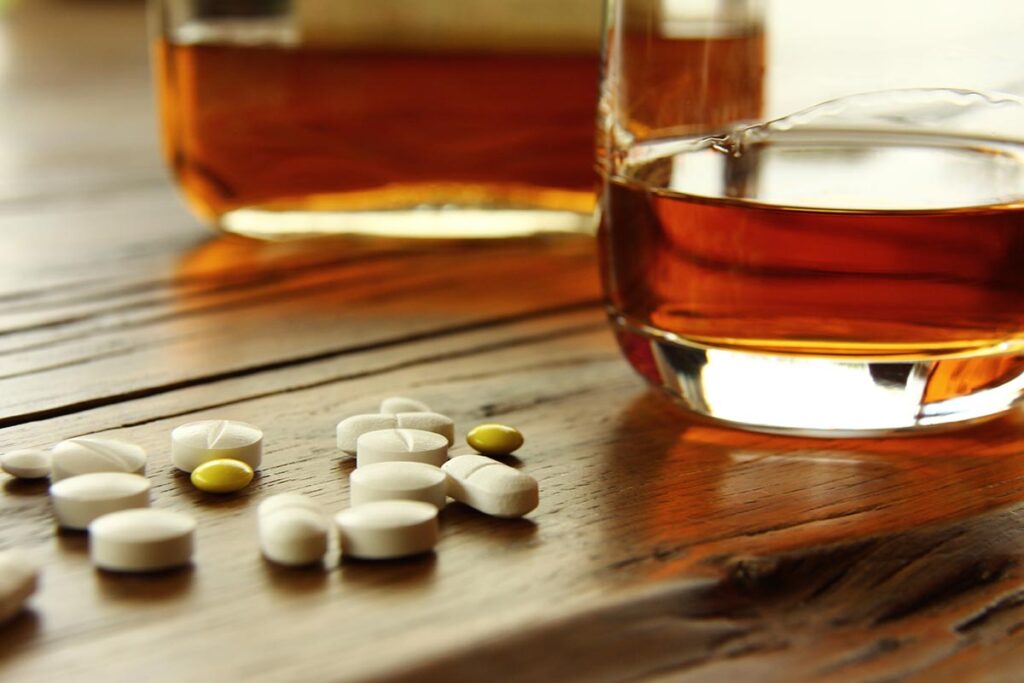More than 10 million Americans deal with alcoholism. On its own, this substance use disorder is responsible for more than 85,000 deaths each year. When alcohol is combined with other drugs, though, the number of deaths goes up. Because it’s the most commonly used intoxicant in the U.S. and most of the world, mixing alcohol with other drugs is very likely to happen.
Along with alcohol addiction, mixing alcohol with other substances should be avoided. Some people may not realize how risky the habit is because both alcohol and prescription medications are legal. The side effects of alcohol mixing can be dangerous, so don’t mix alcohol with any drug – prescription or otherwise – without consulting your doctor.
If you can’t stop drinking alcohol to take the prescription drugs you need, you might have an alcohol use disorder. Discover more about how dangerous alcohol mixing can be by contacting Zelus Recovery online or calling 208.518.0797.
Most Dangerous Things to Mix with Alcohol
Mixing typically illicit drugs, like cocaine, ecstasy, hallucinogens, meth, and marijuana, with alcohol can be harmful. Side effects can be dangerous, such as impaired judgment and physical symptoms that can lead to overdose.
Drugs you take for specific physical conditions – such as antibiotics, medications for allergies, arthritis, diabetes, high cholesterol – should also not be combined with alcohol. Below are others that you should add to that list.
- General pain relief medication – Nearly every house has a bottle of pain medication – whether it’s ibuprofen (Advil), naproxen (Aleve), or acetaminophen (Tylenol). The side effects of mixing these drugs with alcohol depend on the exact drug and brand name formulation. However, some common ones include nausea, liver damage, and stomach bleeding.
- Muscle relaxers – Muscle relaxers that need prescriptions, like cyclobenzaprine (Flerexil), diazepam (Valium), or carisoprodol (Soma), can already make you sleepy by themselves. Their relaxing effect is similar to the effect of painkillers. When mixed with alcohol, they can cause a respiratory effect that slows breathing, leading to an overdose.
- Sleep aids – Sleeping aids like diphenhydramine (Sominex), estazolam (ProSom), eszopiclone (Lunesta), temazepam (Restoril), and zolpidem (Ambien) are not usually dangerous when taken on their own. You should refrain from driving cars or operating machinery – and prepare to have some strange dreams.
- Cough syrup – Cough medications like dextromethorphan (Delsym or Robitussin) depress the respiratory system because this blocks the cough reflex of your body and therefore stops you from coughing for some time. If cough medication is taken safely, it’s fine for your body to experience this. However, mixing cough syrup with alcohol is unsafe.
- Mood stabilizers – As their name suggests, mood stabilizers help regulate moods in people with chemical imbalances. They’re used to treat conditions such as manic depression and bipolar disorder. Popular medications of this type include valproate (Depakote) or lithium carbonate (Eskalith or Lithobid). The interaction between lithium-based drugs and alcohol is unhealthy. When these two substances mix inside the body, they may cause dizziness, vomiting, or tremors.
- Stimulants – Stimulants are often ADHD medications – like amphetamine/dextroamphetamine (Adderall), methylphenidate (Concerta or Ritalin), atomoxetine (Strattera), and lisdexamfetamine (Vyvanse) – and they work to help people focus better by working as a pick-me-up for the central nervous system. This occurs when stimulants enable an influx of dopamine and norepinephrine to enter the brain. Some people may think that mixing stimulants with alcohol is nothing to worry about because of the common myth that stimulants and depressants cancel each other out. This myth is untrue and should not be used to justify any substance mixing at all.
- Antidepressants – Like alcohol, antidepressants are popular in the U.S. More than 10% of Americans take these medications regularly. The most common antidepressants include citalopram (Celexa), duloxetine (Cymbalta), fluoxetine (Prozac), quetiapine (Seroquel), bupropion (Wellbutrin), and sertraline (Zoloft).
- Anxiety medications – Anxiety medications include alprazolam (Xanax), lorazepam (Ativan), and clonazepam (Klonopin). Diazepam (Valium) can be considered both a muscle relaxer and an anxiety medication.
- Caffeine – Coffee and energy drinks can trick you into thinking you’re less tired and intoxicated than you are, along with dehydrating your body. This can lead to potentially risky levels of alcohol consumption. On top of fueling alcohol addiction, mixing alcohol and caffeine can result in alcohol poisoning.
- Opioids – Opioids or prescription painkillers are deadly on their own. Drug combinations like oxycodone/paracetamol (Percocet) and hydrocodone/acetaminophen (Vicodin) – as well as meperidine (Demerol) and fentanyl (Duragesic or Abstral) – kill thousands of people each year.
Many people forget how dangerous opioids are because they’re prescribed. Anyone using opioids to manage a medical condition must also be aware that they’re also at risk of developing a dependence on it. When opioid use gets out of control, our Zelus Recovery team can help. We recognize that opioid addiction is a disease, not a choice. Our treatment programs combine mental health and addiction treatment to give people their best chance at long-lasting recovery.
Find the Right Level of Care for You with Zelus Recovery’s Addiction Treatment Programs
If you or someone you care about needs to take medication for an illness or a condition but can’t do it safely because they’re addicted to alcohol, get some help. Zelus Recovery in Idaho offers outpatient addiction treatment programs that promote alcohol recovery with family involvement. Contact us online or call 208.518.0797 for more information.





